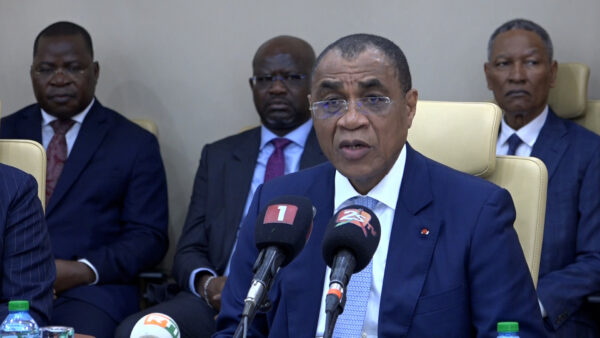The third ordinary meeting of the Council of Ministers of the West African Monetary Union (Umoa) for the year 2025 began on Monday, October 6, at the headquarters of the Central Bank of West African States (BCEAO) in Dakar, Senegal. This session, chaired by Adama Coulibaly, Minister of Finance and Budget of Côte d’Ivoire and current President of the Council, is being held against the backdrop of a resilient regional economic dynamic.
According to the agenda, the discussions will focus on a substantial agenda covering key areas of regional integration. Under the UEMOA, ministers will review, among other things, the draft implementation report of the multilateral assurance for the year 2025. They will also examine a draft recommendation defining the economic policy orientations for the member states for the year 2026. Another major point under consideration is the establishment of a harmonized survey on household living conditions within the Union member states.
As for the Financial Markets Authority (AMF-UMOA), the council is expected to analyze and approve the annual accounts of the institution for the year 2024. It will also consider a proposal regarding the pricing applicable to the Deposit and Consignment Funds, as well as a modification of decision number CM/13/12/2011, revised to set the fees of the regional council for savings and financial markets.
Finally, regarding the BCEAO, ministers will give their opinion on the state and implementation of decisions related to strengthening the external position of the Union.
Dynamic and controlled regional economic context
This meeting takes place in an international environment still marked by geopolitical and trade tensions. However, the UEMOA displays a strong economic health according to its leaders.
Indeed, it is reported that growth remains robust with a 6.5% increase in Gross Domestic Product (GDP) in the second quarter of 2025, after 7% in the previous quarter. For the whole year 2025, real GDP growth is estimated at 6.3%, the same level as in 2024. This performance is mainly driven by the acceleration of household consumption and continued investments in energy and transportation infrastructure.
On the inflation front, the situation has significantly improved. The annual inflation rate stood at 0.6% in Q2-2025, after 2.2% in the previous quarter. This decline is due to sufficient local supply of food products, lower prices of imported energy and food products, as well as reduced fuel prices in some countries. The average inflation for 2025 is projected at 1.2%, compared to 3.5% in 2024.
Public finances also show a positive trend. The overall budget deficit of the Union is expected to decrease, from 5.1% of GDP in 2024 to 3.7% in 2025, reaching 3.2% in 2026. This budget consolidation would result from the efforts of member states in terms of revenue mobilization and expenditure control.
Finally, the external balance of payments has improved, supported by the increase in prices of certain export products, the rise in hydrocarbon export volumes, and better mobilization of external resources by the states.
This session of the Umoa Council of Ministers will be crucial to validate the economic policy instruments that will consolidate these achievements and address persistent challenges, including security, to ensure inclusive and sustainable growth in the community space.


